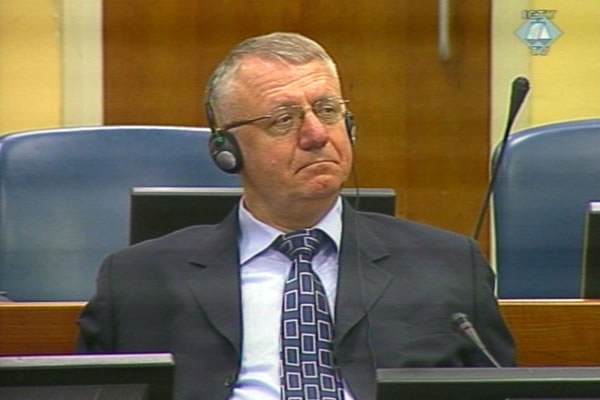Home
ŠEŠELJ CONVICTED OF CRIMES AGAINST HUMANITY
The Appeals Chamber of the Mechanism for the International Criminal Tribunals reversed the acquittal of Serbian radicals' leader Vojislav Šešelj, entered convictions under three counts of the indictment for persecution on political, racial and religious grounds, and sentenced him to 10 years of imprisonment
 Vojislav Seselj in the courtroom
Vojislav Seselj in the courtroom As of today Vojislav Šešelj is a convicted war criminal, who had already served his sentence of 10 years in the Tribunal's Detention unit pending trial. Therefore he would not have to return to The Hague to serve it.
That is, in short, the outcome of the sentencing delivered today by the Appeals Chamber of the Mechanism for the International Criminal Tribunals, by which the judges partly allowed the Prosecution's appeal and reversed Šešelj's acquittal by the Trial Chamber of 31 March 2016.
Most importantly, the Appeals Chamber reversed one of the most absurd finding of the Trial Chamber, that there had been no widespread and systematic attack against non-Serb civilians in Croatia and Bosnia-Herzegovina in 1991 and 1992. That finding was in collision with all the other judgements rendered by the Tribunal, from the first one in 1996 to the last in 2017. Due to the ample evidence about murder, torture, cruel treatment and other crimes committed by Serbian military and paramilitary forces in Vukovar, Zvornik, wide Sarajevo area, Mostar and Nevesinje, no reasonable trier of facts could have found that there was no widespread and systematic attack against civilian population, said the Appeals Chamber in its judgment. The attacks of such nature qualify as crimes against humanity.
Even though the Appeals Chamber concluded that Šešelj's speeches in which he threatened that „the river of blood“ would flow and spoke derogatory about other nations were of „inflammatory“ nature and „could have prompted his followers tocommit crimes“ against non-Serb civilians, the judges did not revise the finding of the Trial Chamber that Šešelj's statements and speeches did not amount to the commission or instigation of the crimes. The Appeals Chamber was „mindful of the significant lapse of time between some of the statements and the commission of offences, and the highly circumstantial nature of evidence related to the specific impact, if any, that Šešelj's statements had on the conduct of the perpetrators“.
The same, however, cannot be said about the speech Šešelj delivered on 6 May 1992 in Hrtkovci, Vojvodina.In a clear appeal for the expulsion of the Croatian population of Hrtkovci, Šešelj “substantially contributed” to the conduct of his followers, “thereby instigating the crimes of persecution, deportation, and other inhumane acts (forcible transfer), as crimes against humanity”, found the Appeals Chamber. Šešelj “incited violence that denigrated and violated the right to security of members of the Croatian population of Hrtkovci, thereby committing the crime of persecution, as a crime against humanity”.
There are clear indications in the evidencewhich could have led a reasonable trier of fact to infer that the crimes Šešelj is accused of were committed in furtherance of a common criminal purpose to permanently forcibly remove a majority of the Croatian, Bosnian Muslim, and other non-Serbian populations, said the Appeals Chamber, but itdid not reverse the Trial Chamber finding that the Prosecution failed to prove the existence of a joint criminal enterprise. In reaching that conclusion both chambers considered various factors and evidence, including the disagreements between Šešelj and the alleged members of the joint criminal enterprise.
According to the Šešelj indictment, the other members of that joint criminal enterprise were Slobodan Milošević, Veljko Kadijević, Blagoje Adžić, Jovica Stanišić, Franko Simatović i drugi. It remains to be seen whether the Prosecution will be able to prove the existence of a joint criminal enterprise in the trial of Stanišić and Simatović, former head and member of Serbia’s State security service, that is still on-going.
